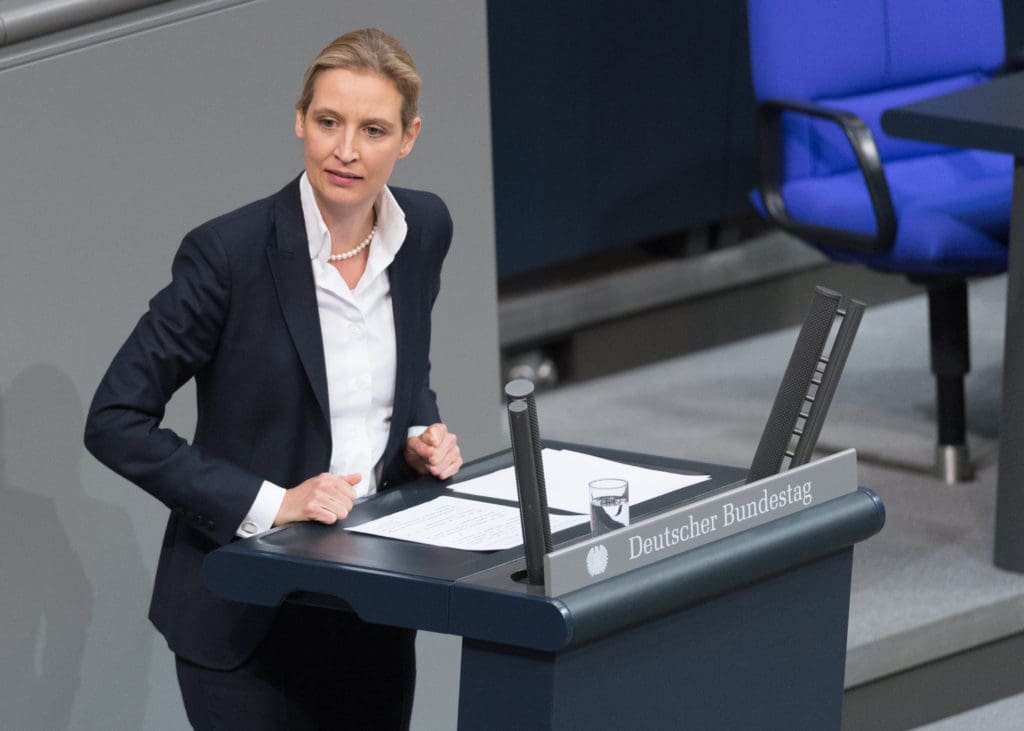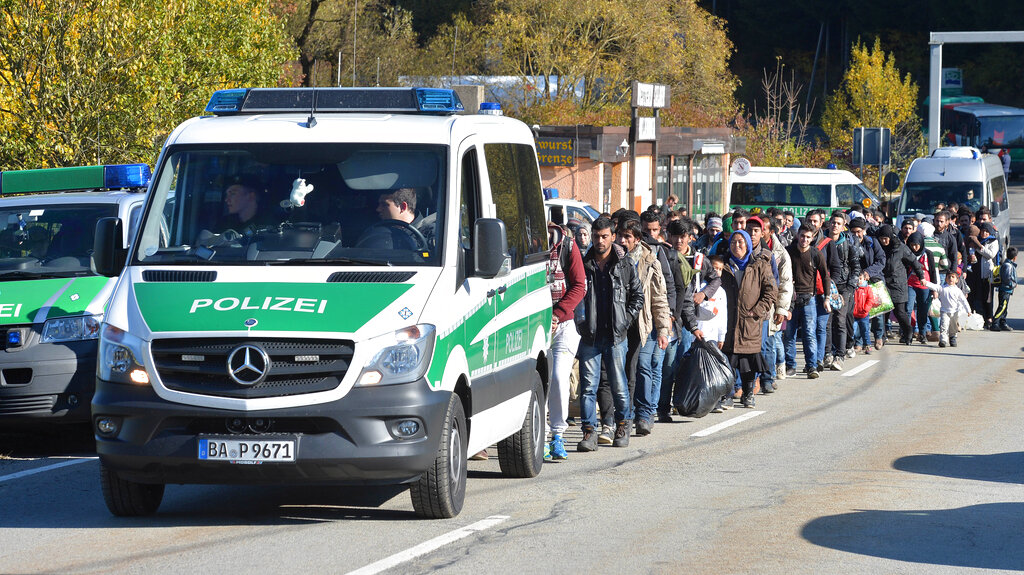Germany’s conservative Alternative for Germany (AfD) leader, Alice Weidel, says Germany’s welfare state is under severe threat due to mass migration, and instead of granting citizenship to millions of migrants, the government should be closing the border.
Weidel says she sees the figures as an “unmistakable alarm signal for the welfare state.” The migration report shows the concerns over immigrants relying on the welfare state instead of entering the labor market are “more than justified.”

In addition, the party leader said the situation could worsen in the spring when the “citizen’s income” comes into effect.
“It represents nothing more than an unconditional basic income that will dramatically increase the migration pressure that already exists,” she warned. Instead of moving forward with a radical plan that will see up to 2 million migrants given citizenship overnight, Germany should now pursue a “policy of closed borders.”
Germany’s left-wing government is looking to broadly reform Germany’s citizenship laws in the coming months, which will reduce the number of years required to live in Germany before a migrant is eligible for citizenship. The reform will also drop language test requirements for those over 65 and other specific groups, as well as remove requirements that migrants pass a history test to obtain a German passport.
Germany’s massive immigration costs
In 2020, Germany announced it would spend €64.5 billion over the next four years on integrating migrants. The massive sum is already highly outdated. In 2022 alone, over 1.2 million migrants arrived in Germany, including up to 500,000 from non-European countries, which will require tens of billions more in funding, which Germany is taking on enormous debts to achieve.
[pp id=49771]
So far, the results have been less than stellar. Large-scale riots involving almost entirely migrant communities on New Year’s Eve shocked the country less than two weeks ago and opened up a nationwide discussion about the ongoing perils of mass migration. Overall, foreigners account for an enormous share of crime in Germany relative to their population, including for the most serious crimes of murder, rape, and robbery.
In addition, job integration efforts have mostly failed, with over half of the migrants who arrived during the 2016 migrant crisis either unemployed or not looking for work. Most of those who are employed work in low-skilled jobs so poorly paid that they are still eligible for social benefits.
[pp id=8048]
AfD is critiquing the government’s plans to drastically increase social spending, including proposals to offer a basic income, while at the same time promoting an open border policy. The party argues that this will serve as a major draw for more immigration, which will in turn only increase the financial burden on German taxpayers. In addition, there are growing signs that German schools, healthcare, infrastructure, housing, and the education system are buckling under the pressure of the country’s rapidly growing migrant population.
Polling shows the majority of Germans, 66 percent, are now increasingly concerned about immigration, and less than 30 percent are “relaxed” about the issue.
European parties opposed to mass immigration are raising the alarm that generous welfare states are incompatible with open borders, as masses from the world’s poorest countries desperately attempt to reach Europe. In fact, even some left-wing parties are making this case, including Denmark’s left-wing government, which has repeatedly used this argument as one of the primary reasons it remains opposed to mass migration.






